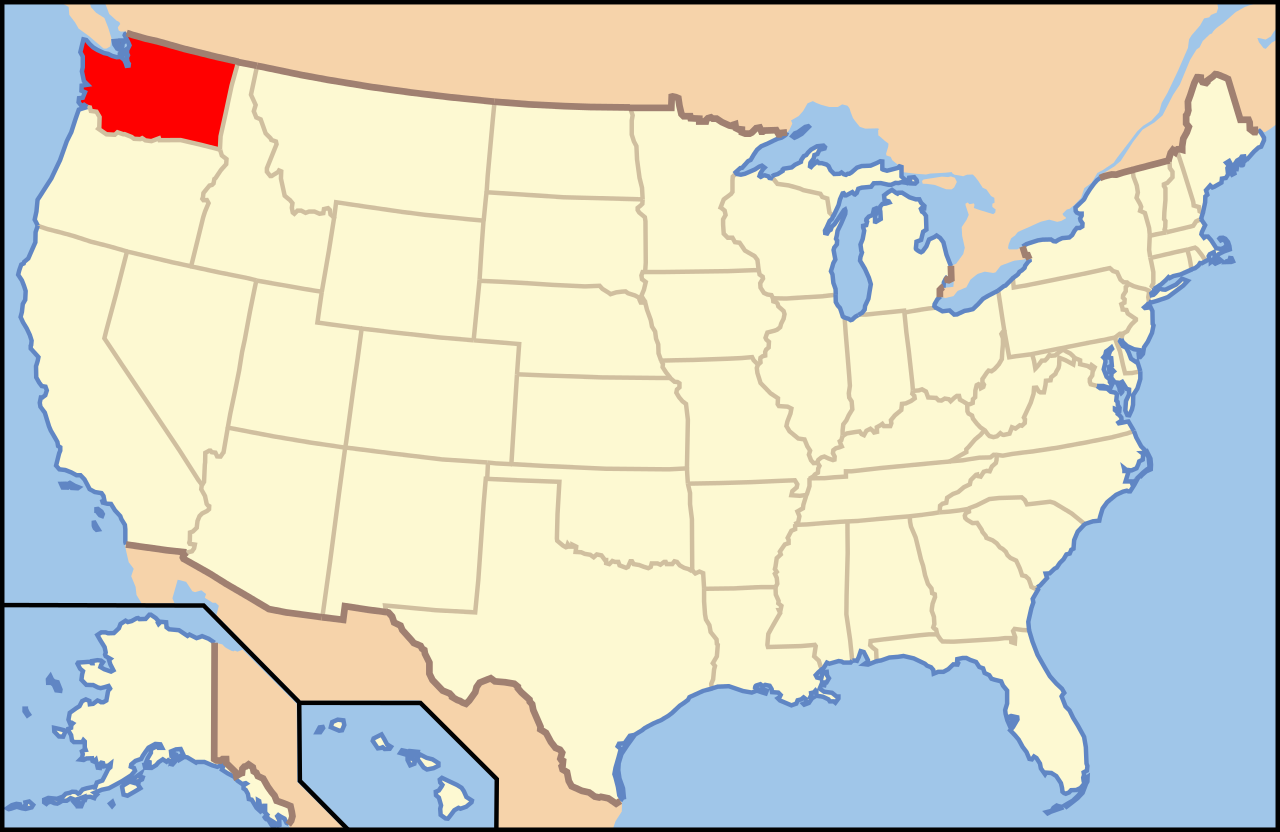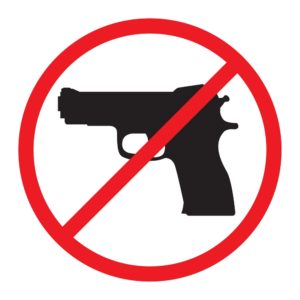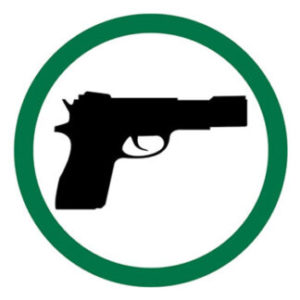Washington State Gun Laws You Need To Know
If you are in Washington and plan on carrying concealed firearms or open carry, then you’ve come to the right place to learn more about the relevant local laws. In this guide, you will discover the necessary information about carrying a concealed firearm in Washington and being a responsible gun owner in the state.
How does Reciprocity work in WA?
According to the Washington law, there are certain requirements that need to be met in order for the state to honor another state’s concealed carry license. Here are the requirements:
- The state must honor a Washington concealed pistol license.
- The state doesn’t issue concealed pistol licenses to persons below the age of 21.
- The state has fingerprint-based background checks for the mental health history of its applicants.
There are only 9 states in the US that meet the requirements mentioned and we will have a look at them shortly.
States that honor a Washington license
Here is the list of states:
- Resident. Alabama, Alaska, Arizona, Arkansas, Idaho, Indiana, Iowa, Kansas, Kentucky, Louisiana, Michigan, Mississippi, Missouri, Montana, North Carolina, North Dakota, Ohio, Oklahoma, South Dakota, Tennessee, Texas, Utah, Vermont, Virginia, and Wisconsin.
- Non-resident. Alabama, Alaska, Arizona, Arkansas, Idaho, Indiana, Iowa, Kansas, Kentucky, Louisiana, Mississippi, Missouri, Montana, North Carolina, North Dakota, Ohio, Oklahoma, South Dakota, Tennessee, Texas, Utah, Vermont, Virginia, and Wisconsin.
State licenses that Washington honors
Here are the state licenses that Washington accepts:
- Idaho, Kansas, Louisiana, Michigan, North Carolina, North Dakota, Ohio, Oklahoma, Tennessee, and Utah.
For Idaho, the state only honors the Idaho Enhanced Permit and for North Dakota, only the Class 1 North Dakota Permit is honored.
States that don’t honor a Washington license
Here is the list of states:
- California, Colorado, Connecticut, Delaware, District of Columbia, Florida, Georgia, Hawaii, Illinois, Maine, Maryland, Massachusetts, Minnesota, Nebraska, Nevada, New Jersey, New Hampshire, New Mexico, New York, Oregon, Pennsylvania, Rhode Island, South Carolina, West Virginia, and Wyoming.
Washington CPL Handgun License
In this state, where you reside will determine who to go to for the application of licenses. For anyone that stays in an unincorporated area of a county, you are required to apply at the sheriffs office.
For anyone that stays in an incorporated city area of a county, you have the choice to apply at the sheriff office or the police department. If you are staying in another state, then you can apply to any local law enforcement agency in the state.
Requirements
Here are the minimum requirements that you need to meet:
- You must be at least 21 years of age.
- You must not have any pending charges.
- You do not have any outstanding arrest warrants.
- You do not have felony convictions.
- You are not subjected to a court order or injunction regarding the possession of firearms.
- You are not free on bond or personal recognizance while awaiting trial, appeal, or sentencing for a felony offense.
- You were not asked to give up a firearm in the past 12 months.
- You don’t have a revoked concealed pistol license.
- You are not a mentally ill person.
Application and Renewal
You may follow these steps to apply for a concealed carry permit in the state of Washington:
- Fill in the application form in person at:
- The county sheriff’s office if you stay in the unincorporated area of a county.
- The department of the city police or the sheriffs office if you stay in an incorporated city within the county.
- Any local law enforcement office in the state if you are not a Washington State resident.
- Download the form online, provide all the necessary information and take it to one of the offices with:
- Proof of residency in the state for at least 90 days.
- A photo ID like your state ID card or Washington drivers license.
- A permanent resident card if you are a resident alien.
- Once the form is submitted your fingerprints will be taken on the spot.
- You will need to wait for about 30 to 60 days for the background check to be completed and once the application is approved, you will be notified by mail.
As for the renewal, here’s what you need to know:
- Concealed carry permits are usually renewed within 90 days prior to the permits expiry date but not before the 90 days.
- Renewal of licenses is also possible for up to 90 days after the expiry date, but do expect a late fee of $42 to be paid.
- If the CCW permit issued isn’t renewed within the given time frame, which means that 90 days elapsed after the expiry date, then you will need to get a new license by going through the application process once more.
- The requirements for renewal are the same as the ones for application, just that you will not be fingerprinted, and the waiting time is usually two weeks.
Fees
When you’re applying for the CCW licenses, a fee is expected and in Washington, it will cost you $36 with an additional fingerprint fee. The renewals will cost you $32 and if you are late, then you are expected to pay $42 for the renewal. Replacement for licenses will cost $10, so be sure to keep your licenses close to you.
Besides that, you can also apply to be a licensed dealer for firearms and it will cost you $125. As for the alien firearms license in the state, it will cost you $50 with an additional fingerprint fee.
Places Off-Limits for Concealed Carry Weapons
There are places prohibited by the Washington state law due to many reasons. No matter what the occasion is, the Washington law is extremely strict when it comes to the carrying of firearms in the following prohibited places:
- Public and private elementary and secondary schools. To be frank, there is only a minuscule list of public or private schools that actually allow firearms on the premises. It is best to assume that every educational facility in the state, from kindergarten through college, is likely a gun-free zone.
- State courthouses. Firearms and weapons are prohibited in any part of a court facility that is used in connection with court proceedings, including courtrooms, jury rooms, judge’s chambers, offices and areas used to conduct court business, waiting areas, and corridors adjacent to areas used for proceedings of the court. The exception is if you are one of the law enforcement officers.
- Office of administrative hearings. Much like a courthouse, any offices used for administrative hearings in the state of Washington prohibits firearm possession.
- Correctional facilities. Places such as jails, prisons, detention facilities, and juvenile facilities, which are essentially facilities made to contain any sort of inmate, prohibits firearm possession.
- Mental health institutions. Any private or public mental health facility, clinic, or hospital prohibits the possession of a firearm.
- Airports. When a person passes TSA, every firearm possession is prohibited by Federal law. However, many airports prohibit you to possess firearms anywhere on the premises including all those areas outside the TSA secured portion of the airport.
- Permitted demonstrations. You cannot open carry or possess a firearm at permitted demonstrations if the authority instructed you to remove your firearm. Carrying firearms openly is also not allowed within 250 feet of demonstrations.
- Other places prohibited by Federal law. Other places that don’t allow you to carry weapons include an outdoor music festival, racing association grounds, licensed pregnant and parenting teen residential programs and their facilities, licensed child care facilities, and overnight youth shelter and residence operated by the juvenile rehabilitation administration.
Places Allowed for Concealed Carry Weapons
While Washington state has laws that prohibit you to carry a firearm in certain areas, there are actually places in the state that allow the possession of firearms. Here are the places that allow you to carry firearms:
- State parks
- State and national forests
- Roadside rest areas
- In a vehicle, but with a permit presence if you want to carry a loaded firearm, or carrying the firearm unloaded and in a closed opaque case or secure wrapper, if you are a person without a license.
Type of Guns Not Allowed
Other firearm laws that can come in handy include the type of firearms that are not allowed in the state. So if you want to stay out of legal trouble, you should not possess the following firearms:
Machine guns. Any firearm that is known as a machine gun, mechanical rifle, sub-machine gun, or any other mechanism or instrument that is similar to a machine gun is not allowed in the state. You can think of a machine gun as an instrument that is capable of firing at a rate of five or more shots per second.
Short-barreled shotguns. Short-barreled shotguns are essentially any shotgun with one or more barrels less than eighteen inches in length. A short-barreled shotgun can also be a firearm that is made from modifying a shotgun. If the firearm has an overall length of fewer than twenty-six inches, it will be considered a short-barreled shotgun.
Short-barreled rifles. A short-barreled rifle is essentially a rifle with one or more barrels less than sixteen inches in length. Any firearm made from a rifle through modification and has an overall length of fewer than twenty-six inches will be considered a short-barreled rifle.
However, it is not illegal if a person manufactures, owns, buys, sells, loans, furnishes, transports, assembles, or repairs, or has in possession or under control, a short-barreled rifle, or any part designed or intended solely and exclusively for use in short-barreled rifles or in converting a weapon into a short-barreled rifle, if he/she is in compliance with applicable federal law.
Bump stocks. This refers to any butt stock made to be attached to a semiautomatic firearm with the purpose of increasing the rate of fire.
You should take note that all machine guns, short-barreled shotguns, short-barreled rifles, bump stocks or any parts designed for the sole purpose of using the firearms mentioned are subject to the relevant authority such as the armed forces of the United States, a police officer, or the state to seize the said machine gun, short-barreled shotgun, short-barreled rifle, or bump stock or parts.
The Legality of Gun Modifications
Modifying your gun in the state requires optimum care because you are not allowed to change, alter or remove any of the original identification markings that your firearm came with. The Washington law prohibits you from removing the manufacturer’s name, serial number, or any other identifying mark.
Handgun Laws To Know
Here are some other laws that will come in handy.
Private Gun Sales
The private sales of firearms in the state are required to be done through a licensed firearms dealer. The dealer has a duty to check the purchaser’s background and keep a record of the sale. The state or federal law exempts the checks for the following:
- Gifts between family members or spouses.
- Sales of antique guns.
- Transfers a firearm to a gunsmith for repairs.
- Guns that are acquired by the executors of an estate when the owner passes.
Preemption Law
There isn’t a preemption law in the state as there are no laws and ordinances allowed to be more restrictive than the state law.
Stand Your Ground Law
The Washington State Supreme Court has ruled that you have no duty to retreat if you are in somewhere you have the right to be in and are being assaulted.
Conclusion
Now that you have a better understanding of each Washington gun law, we believe that staying out of legal trouble shouldn’t be a problem for you anymore. Be sure to keep an eye out for places that don’t allow you to open carry or carry a concealed handgun too.
FAQ
Do I have a duty to notify officers?
No. You are under no obligation to inform a law enforcement officer that you are carrying a firearm. However, you are required to have your CCW permit with you at all times to display to an officer if requested to do so.
Is a firearms training course necessary?
No. You are not required to go through any training courses to get a CCW in the state.

Hello there, it’s Michael here. A gun lover since young, served the country for the last 20 years. I started the blog to share my experience and gun-related knowledge accumulated throughout the years. Hopefully, you will find something useful over here or just have fun! You can learn more about me here.



